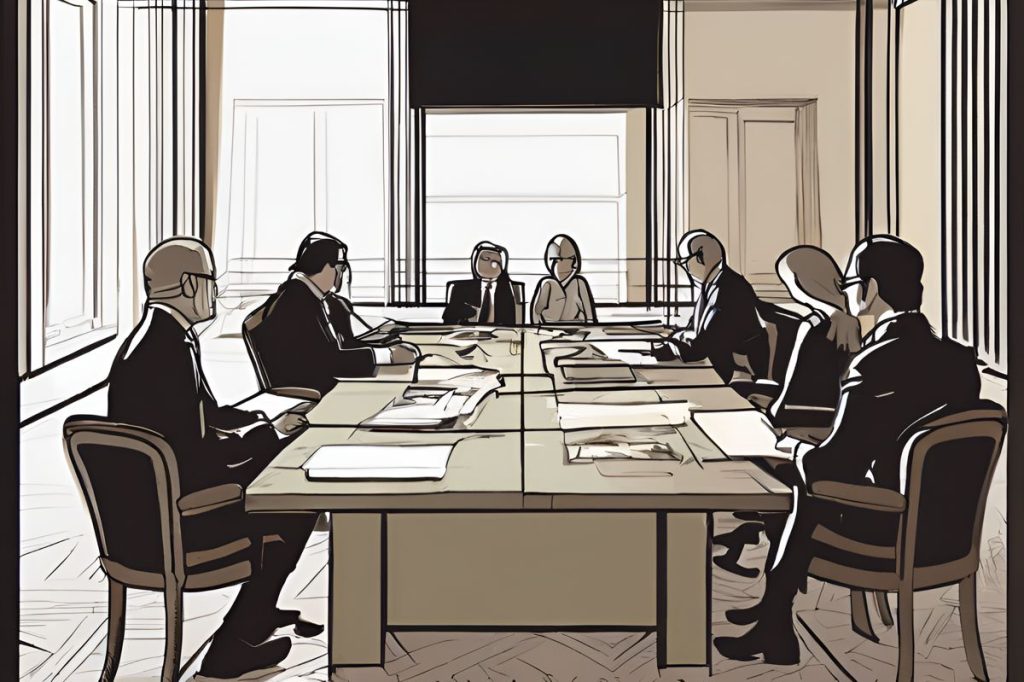Negotiations over the Cyprus problem are at a standstill, with conflicting reports and no formal invitations for dialogue. Turkish Cypriot authorities deny rejecting talks and emphasize their commitment to peace, while UN efforts focus on exploring a two-state solution supported by the northern authorities.
What is the current status of negotiations over the Cyprus problem?
Negotiations over the Cyprus problem are currently at a standstill amid disputed narratives and a lack of formal invitations for dialogue. Turkish Cypriot authorities deny rejecting talks and emphasize their commitment to peace, despite contrasting media reports. UN efforts continue in a bid to evaluate potential common ground for future discussions, focusing on a two-state solution supported by the northern authorities.
Disputed Narratives in Cyprus Talks
Negotiations over the Cyprus problem have once again become a subject of international discussion, with conflicting reports emerging in recent days. The Turkish Cypriot authorities have rebuffed claims that they rejected a proposal for renewed dialogue, as suggested by UN Secretary General Antonio Guterres. Contrary to reports, there was no formal invitation for either a trilateral or multilateral meeting concerning the Cyprus issue.
Officials from the northern part of Cyprus argue that there is a concerted effort to vilify them by purporting that they are the obstacle to peace talks. They stress that their commitment to finding a resolution should not be questioned and that misinformation is marring their reputation in the eyes of the global community.
Denial of Alleged Rejection
Amidst the flurry of media reports, the Turkish Cypriot ‘foreign ministry’ has made it clear that the accusations levied against them regarding the Cyprus negotiations are not only unfounded but also appear to be a deliberate attempt to discredit their side. It was suggested that the narrative being shaped in the Greek Cypriot press, which casts the Turkish Cypriot side as dismissive of talks, is a false representation of actual events.
The confusion was further intensified by a statement from the President Nikos Christodoulides, expressing profound disappointment over the leaks from the national council meeting, yet withholding comments on the authenticity of the content being discussed. This has left room for speculation and has fueled the ongoing debate about the true intentions of each party involved.
The Role of UN Envoy Maria Holguin
Adding to the diplomatic tangle is the mission of UNSG personal envoy Maria Holguin, whose role has been clarified by the northern authorities. It was emphasized that Holguin’s task is not to establish common ground but rather to evaluate if it exists, setting the stage for potential future talks. This subtle but significant distinction reveals the complexities involved in restarting negotiations and highlights the cautious approach taken by international mediators.
The quest for a sustainable solution in Cyprus is further complicated by the Turkish Cypriot insistence on a two-state resolution. This stance is aligned with Turkey’s perspective and diverges from the traditionally sought-after federal solution. The belief held by the northern authorities is that sovereign equality and reciprocal respect are prerequisites for any enduring settlement, which in their view, could be achieved through the establishment of good neighborly relations under a two-state framework.
No Conclusions, Just Ongoing Efforts
The situation remains fluid as diplomatic efforts continue behind the scenes. Despite the absence of an official proposal from the UN Secretary General, efforts to rekindle dialogue persist. The way forward seems to be paved with diplomatic sensitivities, requiring careful navigation to avoid further misrepresentations or escalations. It remains to be seen how the parties will overcome these communication challenges to pave the way for meaningful progress on the Cyprus problem.
What is the current status of negotiations over the Cyprus problem?
Negotiations over the Cyprus problem are currently at a standstill amid disputed narratives and a lack of formal invitations for dialogue. Turkish Cypriot authorities deny rejecting talks and emphasize their commitment to peace, despite contrasting media reports. UN efforts continue in a bid to evaluate potential common ground for future discussions, focusing on a two-state solution supported by the northern authorities.
What role does UN Envoy Maria Holguin play in the Cyprus negotiations?
UNSG personal envoy Maria Holguin’s role in the Cyprus negotiations is to evaluate the potential for common ground between the conflicting parties rather than establish it outright. This distinction highlights the complexities involved in restarting negotiations and the cautious approach taken by international mediators.
What is the Turkish Cypriot stance on the Cyprus issue?
The Turkish Cypriot authorities are advocating for a two-state resolution to the Cyprus issue, diverging from the traditionally sought-after federal solution. They believe that sovereign equality and reciprocal respect are essential for a lasting settlement, which they argue could be achieved through the establishment of good neighborly relations under a two-state framework.
What challenges are hindering progress on the Cyprus problem?
Misinformation, disputed narratives, and a lack of formal invitations for dialogue are among the challenges hindering progress on the Cyprus problem. The diplomatic tangle, differing perspectives on potential solutions, and the need for careful navigation of diplomatic sensitivities add further complexity to the situation. Ongoing efforts are being made to overcome these challenges and pave the way for meaningful progress in resolving the Cyprus issue.

